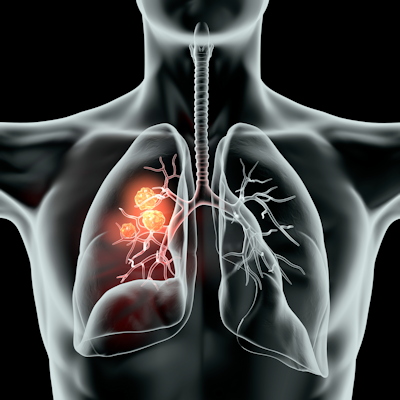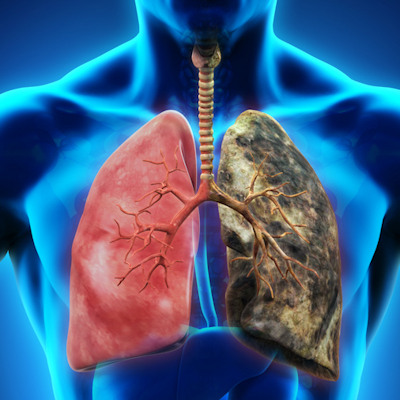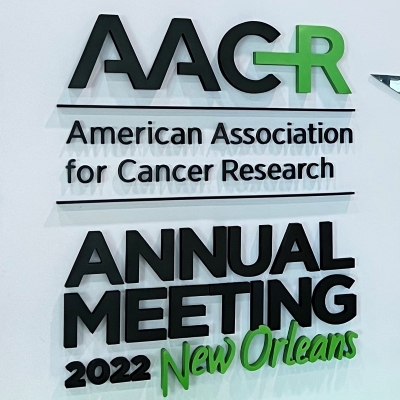April 17, 2023 -- In a clinical trial, a regimen of pre-surgical immunotherapy and chemotherapy followed by post-surgical immunotherapy significantly improved outcomes compared to chemotherapy alone for patients with operable non-small cell lung cancer (NSCLC).
University of Texas researchers presented the phase III trial results on Sunday at the American Association for Cancer Research's 2023 annual meeting.
For resectable NSCLC, previous studies have shown some benefit from using post-surgical (adjuvant) or pre-surgical (neoadjuvant) immunotherapy, but the benefits have been modest.
Durvalumab, an immune checkpoint inhibitor targeting the protein PD-L1, has been approved for treating specific oncology patients. These include patients with locally advanced, unresectable NSCLC following definitive chemoradiotherapy, and those with metastatic NSCLC in combination with the monoclonal antibody tremelimumab and platinum-based chemotherapy.
The study researchers sought to evaluate the benefits of durvalumab given perioperatively (administered both before and after surgery) added to platinum-based chemotherapy in adults with untreated stage IIA-IIIB NSCLC. The primary endpoints were pathologic complete response and event-free survival.
Participants in the randomized, double-blind, placebo-controlled study received either pre-surgical durvalumab and platinum-based chemotherapy followed by post-surgical durvalumab, or neoadjuvant placebo and chemotherapy followed by adjuvant placebo. A total of 802 patients were randomized 1:1 into each arm; 740 patients were included in the efficacy analysis, including 366 on the durvalumab arm and 374 on the placebo arm. Participants' median age was 65 and 71.6% were male; 53.6% were white, 41.5% Asian, and 4.9% other.
The treatments were well tolerated, with maximum grade 3 to 4 adverse events observed in 42.3% and 43.4% of patients on the durvalumab and placebo arms, respectively. Of the patients receiving perioperative durvalumab, 17.2% had a pathologic complete response compared to just 4.3% of those receiving chemotherapy alone. At a median follow-up of 11.7 months, event-free survival was 25.9 months in the placebo arm, but had not yet been reached in the durvalumab arm.
These data correspond to a 32% lower chance of patients experiencing disease recurrence, progression, or death with the immunotherapy-based treatment compared to chemotherapy alone. Approximately four times more patients treated with perioperative durvalumab plus chemotherapy achieved a pathologic complete response when compared to those treated with chemotherapy alone.
The data indicate the benefits of perioperative immunotherapy for resectable NSCLC, and add to the evidence supporting the benefits of both neoadjuvant and adjuvant immunotherapy for this condition, the researchers said.
Future studies may help determine which patients may benefit most from neoadjuvant therapy and avoid further treatment, as well as identifying patients at high risk of recurrence who may require more intensive adjuvant regimens.
"This study shows that a combination of neoadjuvant and adjuvant durvalumab offers benefit for patients and may have the potential to change standard-of-care for patients with resectable non-small cell lung cancer," Dr. John Heymach, a University of Texas oncologist and principal investigator, said in a statement. "Going forward, we hope to build more effective regimens without giving more treatment than is necessary."
Disclosure: This study was funded by AstraZeneca. Dr. Heymach serves on advisory committees and receives research support from AstraZeneca and other pharmaceutical companies.
Copyright © 2023 scienceboard.net











